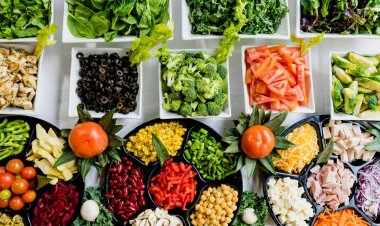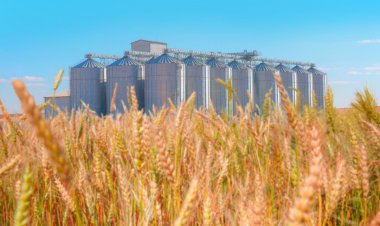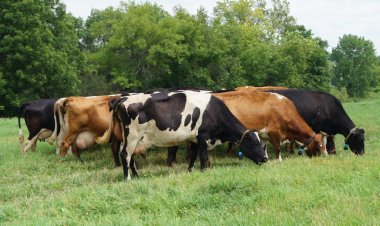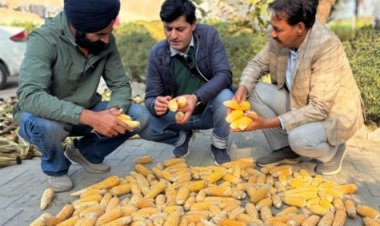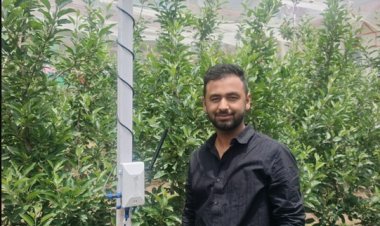Drought resistant HB4 wheat being planted on limited basis in Brazil and Argentina
A new drought resistant variety of wheat is set to play a vital role in South America. HB4 wheat, developed by the Argentine company Bioceres, using a gene derived from sunflowers, is being taken up by growers in Argentina and Brazil.
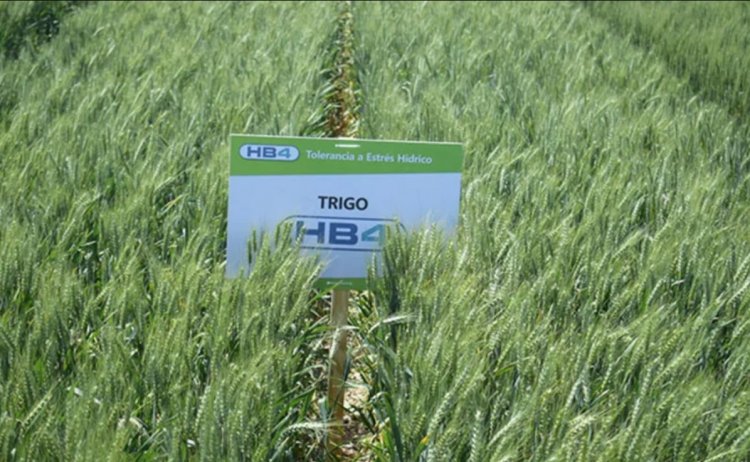
A new drought resistant variety of wheat is set to play a vital role in South America. HB4 wheat, developed by the Argentine company Bioceres, using a gene derived from sunflowers, is being taken up by growers in Argentina and Brazil. South America’s major grain and oilseeds producers, Brazil and Argentina are, behind the United States, the second and third largest growers of biotech crop varieties in the world. The World Grain magazine has reported this in its latest issue of August 2024.
It says that the wheat involved is the drought-resistant HB4 variety developed by Bioceres. However, the approval in Argentina raised concerns among several farmer organizations and exporters, as they understand this approval might put Argentine wheat exports at risk in other markets. To address these concerns, the government of Argentina created an audit commission within the National Seed Institute (INASE).”
The Argentine authorities took the view that the biosafety approval granted to flour derived from HB4 wheat met the regulatory requirement for major market approval and granted full approval for HB4 seed commercialization in May 2022. In Brazil, this variety received approval for cultivation in March 2023.
As per the report, Martin Mariani, manager of global seed and trait at Bioceres, said, “In terms of HB4 wheat being planted in Argentina and Brazil, it’s important to note that we don’t see HB4 as a replacement per se for traditional wheat — more like an insurance policy, because it can stabilize production in traditional wheat production regions that are experiencing longer and more regular incidents of drought, like the Central and Southern productive regions of the Argentine Pampas (which contribute more than 95% of wheat production in Argentina) and the southern states of Brazil (90% of Brazil’s productive wheat area), both of which have recently suffered some of their worst, most prolonged droughts in decades.”
“In Argentina in the 2022-23 season, more than 55,000 hectares of HB4 wheat were planted out of a total of 5.9 million hectares,” Mariani said. “Overall, from 2019 up to today, over 100,000 hectares of HB4 wheat were planted in Argentina. We also have collaborations with other seed companies that are developing HB4 varieties in Argentina.”
HB4 wheat is the only available drought-tolerant wheat technology available today, he said. “It enables crops to maintain photosynthesis and generate antioxidants and Osmoprotectants in conditions of water stress, and therefore offers more predictable yields under adverse conditions,” Mariani said. “It can therefore play a key role in the adaptation of farming systems to more extreme climates.”
HB4 wheat increases yields by an average of 20% in water-limited conditions, a key adaptation that favors double-cropping systems, where water management is increasingly critical, he said. “Importantly, from the grower perspective, the technology doesn’t cause any drag yield when there is no drought and is tolerant to glufosinate herbicide,” Mariani said.
With more than 26 million hectares planted with genetically engineered soybean, corn and cotton crops, Argentina has the third largest area of GE crops under cultivation in the world. The commercial adoption of GE crops began in 1996 with the introduction of herbicide-tolerant soybeans and has seen unprecedented growth in area planted since.
Currently, 100% of soybeans, 99% of corn, and 100% of cotton planted in Argentina is genetically engineered. While in the past Argentina has primarily been a producer of GE crops destined for feed and fiber, it is now the first major wheat exporter to commercialize GE wheat for food use.
Before the approval of HB4 wheat, there were 105 GE events approved for commercial cultivation in Brazil, of which 55 events are for corn, 23 for cotton, 18 for soybeans, six for sugar cane, two for eucalyptus, and one for a virus resistant variety of dry edible bean.



 Join the RuralVoice whatsapp group
Join the RuralVoice whatsapp group


















